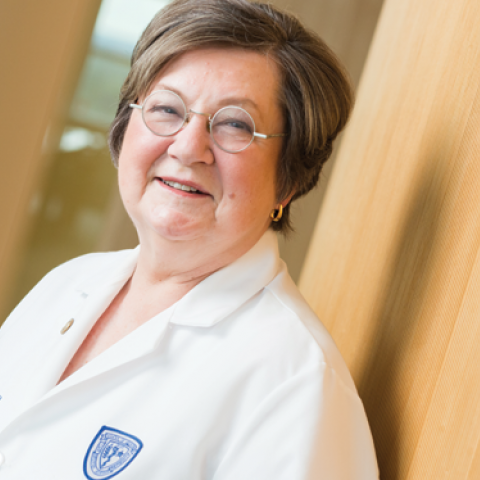A few short weeks ago, during the virtual graduation of the Class of 2020, many of us physicians rose to recite with Steve Ricanati, Interim Vice Dean for Medical Education, and our graduates, the Hippocratic Oath. We promised:
“…I will maintain the honor and noble traditions of the medical profession.
I will not permit considerations of race, religion, nationality, sexual orientation, party politics or social standing to intervene between my duty and my patient.
I will maintain the utmost respect for human life.
Even under threat I will not use my knowledge contrary to the laws of humanity.
These promises I make freely and upon my honor.”
Our students recited this, fresh from their stints as volunteers at University Hospitals, Neighborhood Family Practice, Cuyahoga County Board of Health, and other sites where they manned hotlines, tracked COVID contacts, and contributed to the response of the pandemic. Many of them used their language skills acquired elsewhere to help people whose first language is not English understand what was going on. Some of them saw to other needs of the callers, regardless of where they lived or their national origin or race. Our students had internalized the values in that oath. For a time, we were one city.
And then, recorded on video, the despicable murder of George Floyd occurred over the weekend—by a police officer in the presence of witnesses—including other police officers who did not intervene. Sadly, it’s not our first such episode. The tragic saga includes one of our own, Tamir Rice. The country erupted. Cars were set afire. Buildings were looted and burned. This happened in Cleveland, too. Our beautiful theater district was attacked. Looters and vandals came face to face with armed businessmen protecting their stores. The violence came even closer to home than our revitalizing downtown—the National Guard had to keep order at Euclid and Mayfield. We are under curfew.
As we were struggling to come together to address the pandemic crisis, this crisis of values deals our community another body blow. It’s tough to keep our equilibrium in such a maelstrom of destruction, violence, hate, vicious rhetoric, and protest. But as physicians, scientists, and thinkers, it is our job to remain calm and to heal. But how?
First, we must examine our personal conduct. Even when we are certain we bear no one ill will, we may have unconscious biases that impact our behavior, in small but telling ways. We must consider how we behave toward our colleagues, especially those of different racial background, sexual orientation, or even gender (yes, in the 21st century!) Second, we must be willing to stand and speak up for the principles we believe in, not stridently, but calmly and forcefully. We cannot remain silent any longer. Third, in our professional lives, we must recall and live the Hippocratic Oath every day. Those who are not physicians but scientists have a similar obligation to act in the best interests of our entire community.
I am proud of our students and faculty, and how they came together in research, in service, and in educating others to fight COVID. Can we draw an analogy to the scourge of racial discrimination? Is there a task force that can, by working together, combat it?
Pam


